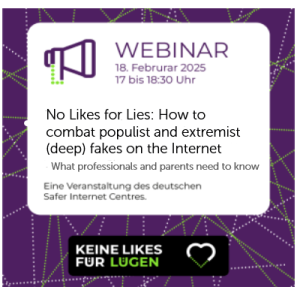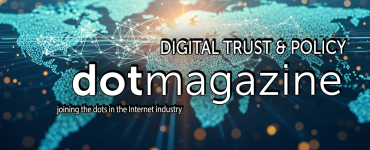This year’s Safer Internet Day is due to take place on 11 February. What is new is that, in addition to that day – which has the motto “No Likes for Lies” – the event will be extended into a full action month. In other words, every day in February is Safer Internet Day. eco – Association of the Internet Industry is participating in the month of action, which aims to promote a safer and more responsible use of digital media and technologies among children and young people.
eco’s activities will focus on two webinars aimed at both professionals and parents. Alexandra Koch-Skiba, the Head of the eco Complaints Office, stresses the importance of raising awareness of the dangers and options for action online – not only among children and young people, but also among parents and professionals in young people’s environment: “Parents and teachers are often an important point of contact for children and young people when they encounter illegal content on the Internet or who fall victim to it. They should therefore know how they can support young people within the legal framework.”
On Tuesday, 11 February 2025, the association, together with the State Prevention Unit against Violence and Cyber Violence for Schools in North Rhine-Westphalia, is hosting a webinar on the topic of nude images. Under the German title “What to do when children and young people send nude images?” – What educational professionals should know, the experts will talk about the legal situation regarding the distribution of nude images and how to deal with those affected by unintentionally sent nude images and perpetrators. They will also discuss what professionals need to know when handling such incidents.
In addition to the eco Complaints Office, the second webinar taking place on 18 February 2025 as part of the “Safer Internet Germany”, will also include the German FSM and jugendschutz.net hotlines, the awareness centre klicksafe and the advice services of Nummer gegen Kummer e.V. Under the German title “No Likes for Lies: How to combat populist and extremist (deep) fakes on the Internet?” – What professionals and parents need to know, the experts will explain the legal boundaries of populist or extremist content online and how young people can be supported when they encounter such content.




